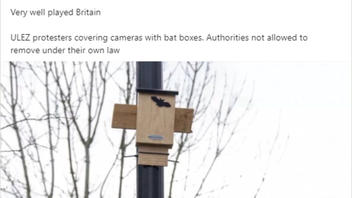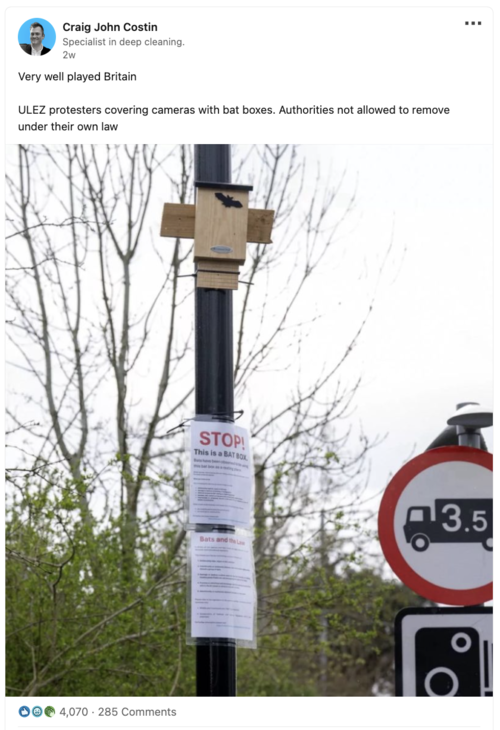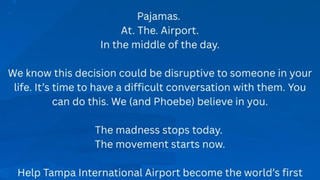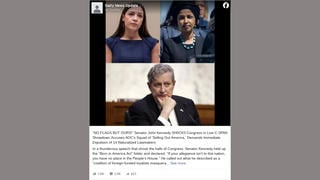
Are officials in London legally prohibited from removing bat boxes that protesters place on the city's traffic surveillance cameras? No, that's not true: It's illegal to install anything over these traffic cameras, which monitor vehicles entering and exiting the Ultra Low Emission Zone in and around the British capital. A spokesperson for Transport for London, which runs the city's transportation network, said the government agency can "legally remove these boxes."
The claim about the bat boxes appeared in a post (archived here) on LinkedIn by Craig John Costin on March 26, 2024. The post's caption said:
Very well played Britain
ULEZ [Ultra Low Emission Zone] protesters covering cameras with bat boxes. Authorities not allowed to remove under their own law
This is what the post looked like on LinkedIn at the time of writing:
(Source: LinkedIn screenshot taken on Fri Apr 12 17:36:43 2024 UTC)
Ultra Low Emission Zone
The website for metropolitan London's Ultra Low Emission Zone (ULEZ) describes the ULEZ as "the largest clean air zone in the world." Its purpose is to improve London's air quality, benefit public health and help combat climate change. Some 3,700 ULEZ surveillance cameras, positioned at the entrances to the zone and along its internal roads, capture the license plates of vehicles. These plates are then cross-referenced with a database to ascertain whether they comply with ULEZ criteria. If a vehicle fails to meet the standards, the driver incurs a daily charge of £12.50 (≈$15.50).
The ULEZ, which was expanded to cover all of London in August 2023, has been the object of protests in the capital.
Transport for London
Transport for London (TfL), which is responsible for most of the British capital's transportation network, manages the ULEZ system. In an email dated April 12, 2024, a TfL spokesperson, referring to bat boxes, told Lead Stories that "It is an offence to place apparatus on TfL's infrastructure without consent." The spokesperson continued:
We are working with environmental specialists to safely and legally remove these boxes.
Additionally, TfL said it's ensuring that its operations at these locations adhere to applicable laws, noting the boxes will be donated to a local animal charity.
Bat boxes
Bats and their roosts are protected under British law. According to the Bat Conservation Trust, a non-governmental organization based in the United Kingdom dedicated to the conservation of bats and the habitats crucial for their survival. Here's a social media post from the group:
Bat boxes are artificial roosts designed to encourage bats into areas where there are few roosting sites. There are various designs of bat box and different bat species need different spaces.
-- Bat Conservation Trust (@_BCT_) March 31, 2024
Learn more about bat boxes here: https://t.co/AGPu2RrLAD pic.twitter.com/WXSQovFJvu
Bat Conservation Trust
Joe Nunez-Mino, director of communications for the Trust, said there's a lot of misunderstanding surrounding bat boxes and the law. In an April 15, 2024, email, he told Lead Stories:
The law requires that certain steps are taken to make sure bat species, their breeding sites and resting places are protected but that does not mean that bat boxes can't be legally removed. Tfl would need a licensed bat worker to carry out a check on ... bat boxes. The licensing authority, in this case, Natural England, would then need to decide if it was necessary to issue a license based on the evidence available.
Additional details about the law can be found on the group's website.
Natural England
Natural England is a government organization whose purpose is to manage, enhance and conserve the natural environment in England, whose capital is London. The Natural England website (archived here) says this about disturbing bats' habitats:
All bat species, their breeding sites and resting places are fully protected by law - they're European protected species.
You may be able to get a licence from Natural England if you cannot avoid disturbing them or damaging their habitats, or if you want to survey or conserve them.
In many instances, it's a matter of common sense, a spokesperson for Natural England said in an April 12, 2024, phone call with Lead Stories. TfL would likely consult Natural England if they encountered a bat box in a busy industrial area where it doesn't belong, the spokesperson said. Natural England would approve its removal in such cases.
Learn more
At the time this Lead Stories fact check was written, Full Fact had reviewed the same claim.
In 2022, Lead Stories debunked a claim that U.S. federal laws protecting bats mean that homeowners associations cannot interfere with the erection of bat roosts.


















